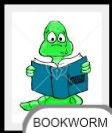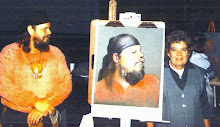Hi all...
I like to write and will write about most anything. Shucks that's how I was a columnist for four newspapers. I thought I might share one of my columns with y'all to kinda give you the flavor of what I do.
The following column appeared in a newspaper down in Texas. My column was a human-interest type and was called `Porch Talk'. The articles were about what folks talk about while sitting out on their porches. In other words - just about anything.. Hope you enjoy..........
<><><><><><><><><><><><><><>
Once in a blue moon, there's someone who gets my goat but I have learned to keep a stiff upper lip. I've learned to keep my eyes peeled, don't cry over spilt milk because tomorrow is a whole new ball of wax. If someone thinks they can put ants in my pants, the son of a gun had better believe it'll be in a pigs eye.
Oh, by the way, I like cliches. In fact, I just used nine in the preceding paragraph. First, go back and see if you can find them ... and then read on.
I do like cliches. Most of the cliches that I use on a day to day basis pertain to history. I really never knew or cared where they originated or how long ago they were first used. I just liked them.
Probably the most common one I use is, `flash in the pan'. I know it comes from when a flintlock rifle is to be fired. A frizzen (hard metal surface) is struck by the hammer (jaws holding a piece of flint) and a spark is produced. When the spark falls into the pan (bowl on the side of gun, holding gunpowder for ignition) the gun is supposed to discharge. Sometimes just the pan ignites with a flash of burning gunpowder but the charge in the gun does not. It is called `a flash in the pan'. As a cliche, a `flash in the pan' means something that happens does not produce a desired effect.
Molly, knowing my love for cliches, gave me a very special book for Christmas. It is called, `The Dictionary of Cliches' by James Rogers. It not only lists 2,000 of the most popular cliches, but also their meanings and origins. I thought I might share a few with you as written in the book.
"1. APPLE OF HIS EYE - a cherished person or object, in old English the eyes pupil was known to be the apple because it was thought to be spherical and solid. Since the student
is a crucial and indispensable portion of the eye, it serves as a symbol of something cherished. An example in the Coverdaly Bible of 1535 (Zechariah II,8) is; "Who so toucheth you, shal touche the aple of his owne eye." The expression also appears in Deuteronomy XXXII, 10 as part of a song spoken by Moses: He found him in a desert land, and in the howling waste of the wilderness: he encircled him, he cared for him, he kept him as the apple of his eye.
2. BETTER SAFE THAN SORRY - Take it easy; steer clear of obvious risks. It sounds like an ancient proverb, but it apparently dates only from the early 19th century, when it was, "it's better to be sure than sorry." The version with "safe" was in circulation by 1933.
3. SO FAR, SO GOOD - Nothing bad has happened yet; the project is moving along satisfactorily. The phrase appears in Samuel Richardson's `The History of Sir Charles
Grandison' (1753)."
As you can see, there's more than meets the eye in cliches. So .... sooner or later if you decide to speak off the cuff and be a smart cookie because you smell a rat, remember to rise and shine even at risk of life and limb because the early bird gets the worm. Enough of that!!!
<><><><><><><><><><><><><><><><><><><>
By the way ... Molly also wrote for two newspapers as a columnist too. Maybe she'll share some of her `work'....... Boy oh boy - this is a fun way of getting back at Molly for getting me into this blog-thingy. ;-)
Guest bathroom remodel
1 year ago














Good to see you in the Blog world, Jay! Sounds like we'll have some fun.
ReplyDelete